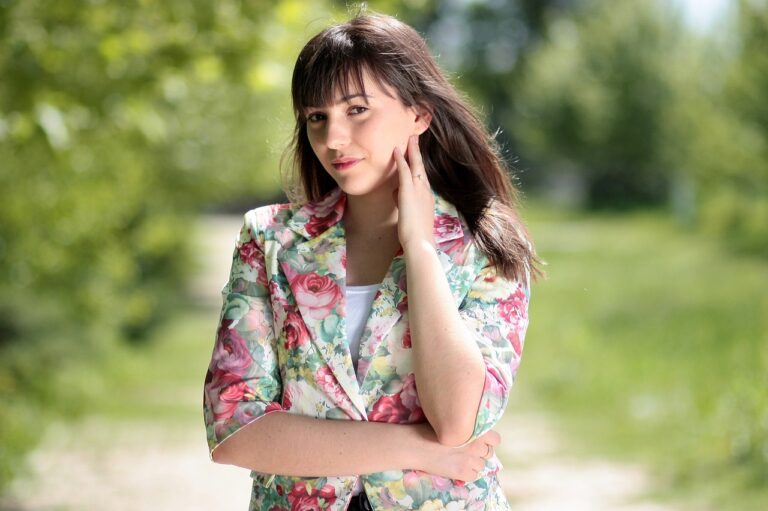The Role of Artificial Intelligence in Fashion Forecasting: Betbhai9 sign up, Playexchange login, Lotus365 vip login
betbhai9 sign up, playexchange login, lotus365 vip login: Artificial intelligence (AI) is revolutionizing every industry, and the fashion world is no exception. With AI algorithms, fashion designers and retailers can now predict trends, analyze consumer behavior, and streamline production processes like never before. In this article, we will dive into the role of artificial intelligence in fashion forecasting and how it is shaping the future of the industry.
Understanding Fashion Forecasting
Fashion forecasting is a crucial aspect of the fashion industry that involves predicting upcoming trends, styles, and colors that will resonate with consumers. Traditionally, fashion forecasting relied on trend analysis, market research, and designer intuition. While these methods are still valuable, they can be time-consuming and subjective. This is where artificial intelligence comes in.
AI-powered algorithms can analyze vast amounts of data from social media, e-commerce websites, fashion shows, and other sources to identify patterns and trends that human analysts may overlook. By using machine learning techniques, AI can predict future trends with greater accuracy and speed, allowing designers and retailers to stay ahead of the curve.
The Role of Artificial Intelligence in Fashion Forecasting
1. Data Analysis
AI algorithms can analyze a wide range of data points, such as customer preferences, purchasing behavior, social media trends, and weather patterns, to identify emerging trends in real-time. This data-driven approach enables fashion professionals to make informed decisions about product design, marketing strategies, and inventory management.
2. Trend Prediction
By analyzing historical data and current market trends, AI can predict future fashion trends with a high degree of accuracy. This predictive capability allows designers to anticipate consumer demand and tailor their collections accordingly. Retailers can also use AI-powered forecasting to optimize their inventory levels and markdown strategies.
3. Personalization
AI-powered recommendation engines can analyze customer data to provide personalized product recommendations based on individual preferences and browsing behavior. By offering personalized shopping experiences, retailers can increase customer loyalty and drive sales.
4. Virtual Styling
AI technologies such as virtual fitting rooms and virtual stylists are transforming the way consumers shop for fashion online. These tools use computer vision and machine learning algorithms to help customers try on clothes virtually, mix and match outfits, and receive personalized style advice.
5. Supply Chain Optimization
AI can optimize supply chain processes by forecasting demand, improving inventory management, and streamlining production workflows. By automating repetitive tasks and optimizing resource allocation, AI can help fashion companies reduce costs and increase efficiency.
6. Sustainability
AI can also play a crucial role in promoting sustainability in the fashion industry. By analyzing data on material sourcing, production methods, and supply chain transparency, AI can help companies reduce their environmental impact and make more sustainable business decisions.
FAQs
1. How accurate are AI predictions in fashion forecasting?
AI predictions in fashion forecasting can be highly accurate, especially when trained on large datasets of historical and real-time data. However, it is essential to combine AI insights with human expertise to interpret the data correctly and make informed decisions.
2. Can AI replace human fashion designers?
While AI can assist fashion designers in trend analysis, pattern recognition, and data interpretation, it cannot replace human creativity and intuition. Designers play a crucial role in translating trends into innovative designs that resonate with consumers on an emotional level.
3. How can small fashion businesses benefit from AI technology?
Small fashion businesses can benefit from AI technology by harnessing its capabilities to streamline operations, improve customer engagement, and optimize marketing strategies. AI-powered tools such as chatbots, personalized recommendations, and inventory management systems can help small businesses compete more effectively in the market.
In conclusion, artificial intelligence is transforming the fashion industry by revolutionizing how trends are predicted, designs are created, and products are marketed. By leveraging AI technologies, fashion professionals can stay ahead of the competition, meet consumer demands, and drive innovation in a fast-paced and ever-changing market. The future of fashion forecasting is undoubtedly bright with the power of AI at its helm.







